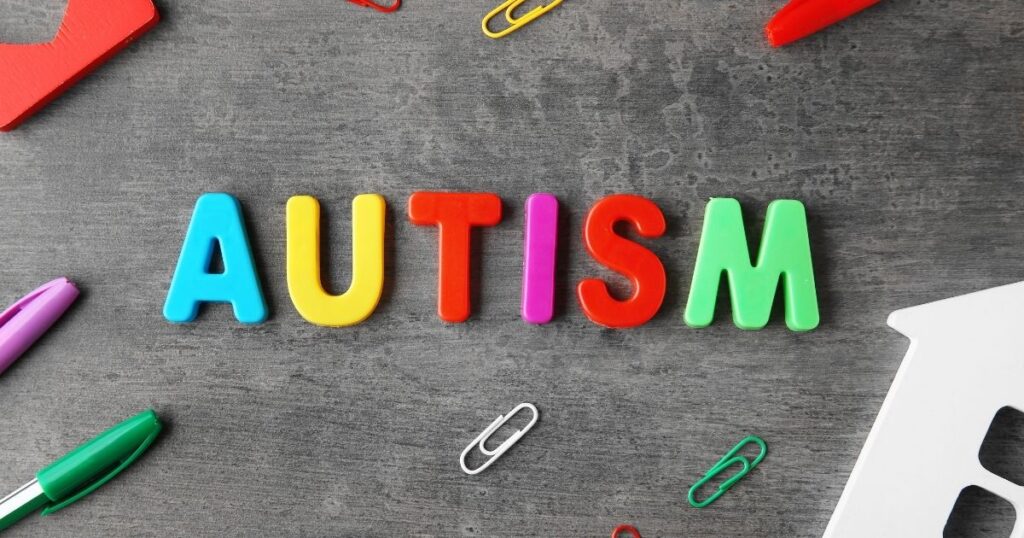Autism Spectrum Disorder (ASD) is a complex neurodevelopmental disorder that affects individuals in various ways. It is characterized by difficulties in social interaction, communication, and repetitive behaviors. Understanding the condition is crucial in finding effective therapy options that can enhance the lives of individuals with ASD.

This article aims to provide an in-depth exploration of the best therapy for ASD – Applied Behavior Analysis (ABA), its benefits, how it works, and the importance of early intervention in therapy. Additionally, alternative therapies and success stories of individuals who have undergone ABA therapy will also be discussed.
Understanding Autism Spectrum Disorder (ASD)
Autism Spectrum Disorder (ASD) is a lifelong condition that affects individuals differently. Some individuals with ASD may have exceptional abilities and strengths, while others may face significant challenges in their daily lives. ASD is characterized by difficulties in social interaction, communication, and repetitive behaviors. It is important to note that ASD is a spectrum disorder, meaning that the severity and symptoms can vary widely.
Different types of therapies for ASD
There are various therapies available for individuals with Autism Spectrum Disorder, each focusing on different aspects of the condition. Some of the commonly used therapies include:
- Applied Behavior Analysis (ABA): ABA is a scientifically proven therapy that focuses on analyzing and modifying behavior. It aims to teach individuals with ASD new skills and reduce challenging behaviors by breaking them down into smaller, manageable steps.
- Speech Therapy: Speech therapy focuses on improving communication skills, including spoken language, nonverbal communication, and social communication. It helps individuals with ASD to develop functional communication and express their needs and wants effectively.
- Occupational Therapy: Occupational therapy helps individuals with ASD to develop the skills needed to perform daily activities, such as self-care, fine motor skills, and sensory integration. It aims to improve their independence and quality of life.
Benefits of therapy for individuals with ASD
Therapy plays a crucial role in improving the lives of individuals with Autism Spectrum Disorder. Some of the benefits of therapy for individuals with ASD include:
- Improved Communication: Therapy helps individuals with ASD to develop and improve their communication skills, allowing them to express themselves effectively and interact with others.
- Enhanced Social Skills: Therapy focuses on improving social interaction, helping individuals with ASD to develop and maintain meaningful relationships with others.
- Reduced Challenging Behaviors: Therapy aims to reduce challenging behaviors commonly associated with ASD, such as aggression, self-injury, and repetitive behaviors. It provides individuals with alternative, more appropriate ways to express themselves.
The best therapy for ASD – Applied Behavior Analysis (ABA)
Applied Behavior Analysis (ABA) has been recognized as the most effective therapy for Autism Spectrum Disorder. ABA is a data-driven, evidence-based approach that focuses on understanding and modifying behavior. It is widely accepted as the gold standard for treating individuals with ASD due to its proven effectiveness in improving various skills and reducing challenging behaviors.
How ABA therapy works
ABA therapy works by breaking down complex behaviors into smaller, manageable steps. It focuses on teaching new skills and replacing challenging behaviors with more appropriate ones. ABA therapists use a systematic approach to analyze behavior, identify the underlying causes, and develop individualized intervention plans. The therapy is highly individualized, tailored to the unique needs and strengths of each individual with ASD.
Finding the right ABA therapy provider
Finding the right ABA therapy provider is crucial for the success of the therapy. When searching for an ABA therapy provider, it is important to consider their qualifications, experience, and approach to therapy. It is recommended to choose a provider who is certified in ABA and has experience working with individuals with ASD. Additionally, it is essential to ensure that the therapy provider uses evidence-based practices and has a collaborative approach that involves the participation of parents or caregivers.
Success stories of individuals who have undergone ABA therapy
ABA therapy has had significant positive impacts on the lives of individuals with Autism Spectrum Disorder. Countless success stories showcase the effectiveness of ABA therapy in improving communication skills, social interaction, and overall quality of life. Many individuals who have undergone ABA therapy have achieved milestones that were once considered challenging or impossible. These success stories serve as a beacon of hope for individuals with ASD and their families, demonstrating that with the right therapy and support, significant progress can be made.
Other alternative therapies for ASD
While ABA therapy is widely regarded as the best therapy for Autism Spectrum Disorder, there are also alternative therapies that individuals with ASD may benefit from. Some of these alternative therapies include:
- Occupational Therapy: Occupational therapy focuses on developing skills needed for daily activities and improving independence.
- Speech Therapy: Speech therapy targets communication skills, including spoken language, nonverbal communication, and social communication.
- Social Skills Training: Social skills training helps individuals with ASD to develop and improve their social interaction skills, enhancing their ability to form and maintain relationships.
The importance of early intervention in therapy for ASD
Early intervention plays a crucial role in the therapy for Autism Spectrum Disorder. Research has shown that starting therapy as early as possible can lead to better outcomes for individuals with ASD. Early intervention helps to capitalize on the brain’s plasticity and maximize the individual’s potential for learning and development. Timely therapy can significantly improve communication skills, social interaction, and adaptive behaviors, setting the foundation for a better future.
Conclusion
Autism Spectrum Disorder is a complex neurodevelopmental disorder that requires effective therapy options to improve the lives of individuals with ASD. Applied Behavior Analysis (ABA) has emerged as the best therapy for ASD, with its proven effectiveness in improving communication skills, social interaction, and reducing challenging behaviors.
However, alternative therapies and early intervention also play significant roles in the overall therapy process. By understanding the different therapies available and the importance of early intervention, individuals with ASD can unlock hope and achieve their full potential.
If you or someone you know has Autism Spectrum Disorder, consider exploring Applied Behavior Analysis (ABA) therapy to unlock their potential and improve their quality of life. Reach out to a certified ABA therapy provider to learn more about the benefits of ABA therapy and find the support you need. Remember, early intervention is key to unlocking hope for a brighter future.


